Eczema
Understanding and Managing Eczema - A Common Skin Condition
Eczema, also referred to as dermatitis, is a common skin condition that manifests through inflammation, swelling, and irritation of the skin. It affects as many as 35 million Americans, ranging from infants to adults. Eczema can appear in various forms, such as atopic dermatitis, contact dermatitis, or seborrheic dermatitis, and often presents with symptoms like red, itchy patches, dry skin, and sometimes even blisters or weeping sores. While eczema is not dangerous, the chronic itching and discomfort it causes can significantly impact the quality of life, leading to sleep disturbances, anxiety, and, in some cases, secondary skin infections from excessive scratching.
At The Skin Surgery Center, our dermatology experts understand that eczema is a complex condition with multiple triggers, including environmental factors, stress, and allergens. Therefore, we offer personalized care and recommendations based on a thorough assessment of your symptoms and unique triggers. Working closely with a skilled skin care provider is crucial for developing a comprehensive care plan that not only addresses the current symptoms but also helps prevent future flare-ups.
Personalized Eczema Care at The Skin Surgery Center
With the right dermatological care and guidance, you can regain confidence in your skin and take control of your eczema. Our team is committed to helping you manage this condition with targeted treatments and strategies that fit your unique needs, ensuring your skin's health and comfort are prioritized. Whether through the use of topical treatments, lifestyle adjustments, or advanced therapies, our goal is to provide you with lasting relief and improved skin health.
Examples of Eczema
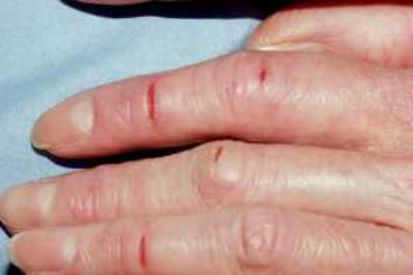
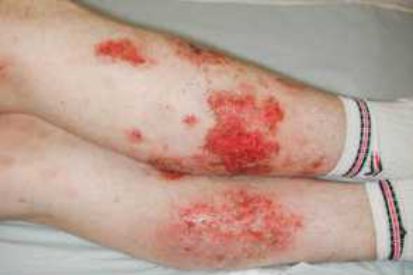
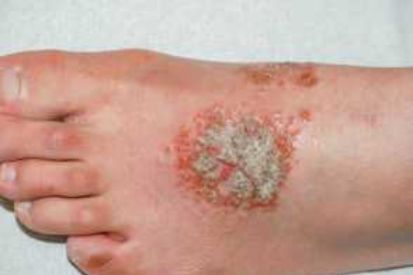
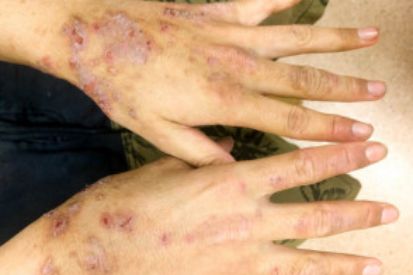
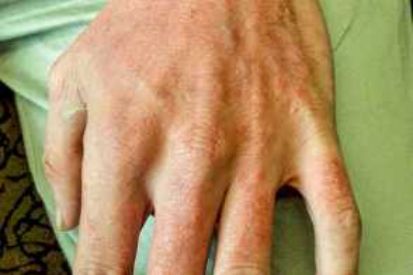
What are the symptoms of Eczema?
- Dry, sensitive skin.
- Intense itching.
- Red, inflamed skin.
- Recurring rash.
- Scaly areas.
- Rough, leathery patches.
- Oozing or crusting.
- Areas of swelling.
Causes of Eczema
- Specific gene variations can affect the skin's ability to provide an effective barrier against irritants and allergens.
- Exposure to certain irritants or allergens, such as harsh soaps, detergents, fragrances, and certain fabrics.
- Your immune system may overreact to certain substances, leading to inflammation and skin irritation.
How to Prevent Eczema
- Gentle skincare and cleansers.
- Avoiding hot baths and tight clothing.
- Seeking medical advice from a dermatologist.
Frequently Asked Questions: Eczema
Eczema flare-ups can be triggered by allergens, irritants, environmental factors, stress, and lifestyle habits. Identifying and managing these triggers is crucial for minimizing occurrences.
No, eczema is not contagious.
Yes, eczema can affect individuals of all ages, from infants to adults.
While there is no cure for eczema, it can be effectively managed with proper treatment.
Gentle skincare routines, like using mild soaps, avoiding hot water, and regularly applying moisturizers, can help soothe and manage eczema symptoms.
Dermatologists are instrumental in effectively managing eczema, a chronic skin condition causing inflammation and itching. They excel in diagnosing eczema accurately by considering medical history and symptoms. Crafting personalized treatment plans, they recommend skincare routines, medications like corticosteroids or antihistamines, and advise on triggers and lifestyle changes. Dermatologists also monitor progress, offer advanced therapies for severe cases, and prevent complications like infections.
From Our QualDerm Family of Brands: Eczema Symptoms
How to Treat Eczema
Dermatologists offer specialized care to manage eczema symptoms and improve the quality of life for individuals with this chronic skin condition. Treatments commonly include:
- Prescription Medications: Dermatologists may prescribe topical corticosteroids or non-steroidal anti-inflammatory creams to alleviate inflammation and itching.
- Topical Medications: These medications help modulate the immune response, reducing inflammation in the affected skin areas.
- Systemic Medications: In severe cases, oral or injectable medications may be recommended to address widespread or persistent symptoms.
Your dermatologist can offer invaluable education on skincare practices, lifestyle modifications, and preventive measures, empowering you manage their eczema more effectively. Regain your confidence and build on your healthy skin journey by scheduling an appointment with one of our providers.
Featured Blogs

- General Dermatology
- Skin Care
- Chronic Skin Conditions
We asked one of our skin care professionals for tips on how to clear up acne. Here's what he had to say.
Read More
- General Dermatology
- Chronic Skin Conditions
Eczema, a chronic skin condition characterized by inflammation and intense itching, can be challenging to manage, especially during flare-ups.
Read More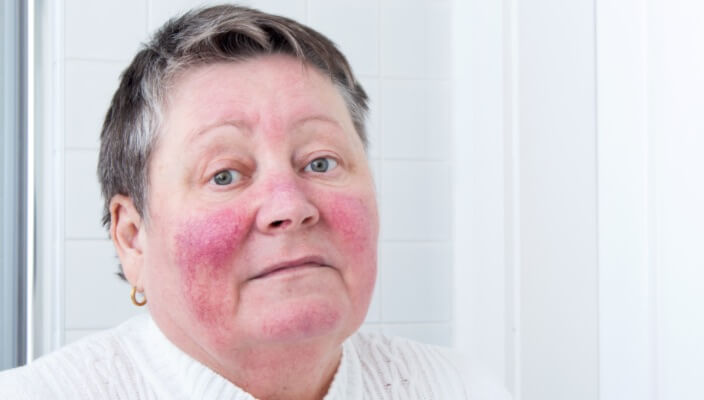
- Chronic Skin Conditions
Rosacea, a chronic skin condition characterized by redness, visible blood vessels, and sometimes acne-like bumps, can be an enigmatic challenge for those who experience it.
Read MoreFeatured Products
Check your local office for current stock!
Check your local office for current stock!


